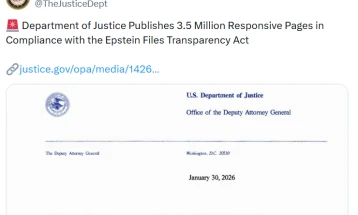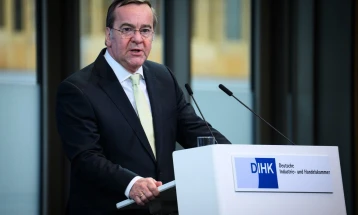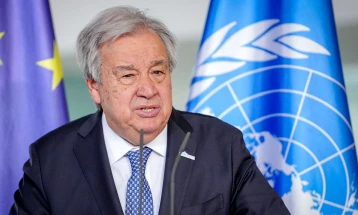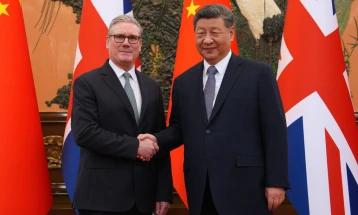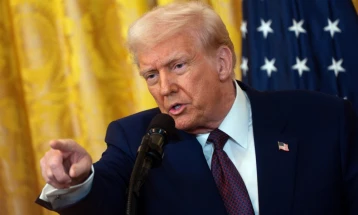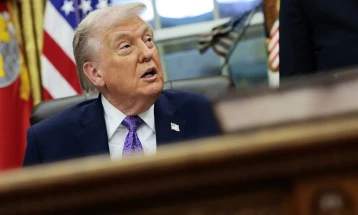Biden: US and China to resume military-to-military communication
- The US and China will resume military-to-military communication after a long period of radio silence, US President Joe Biden told reporters on Wednesday following a long-awaited face-to-face meeting with Chinese leader Xi Jinping.
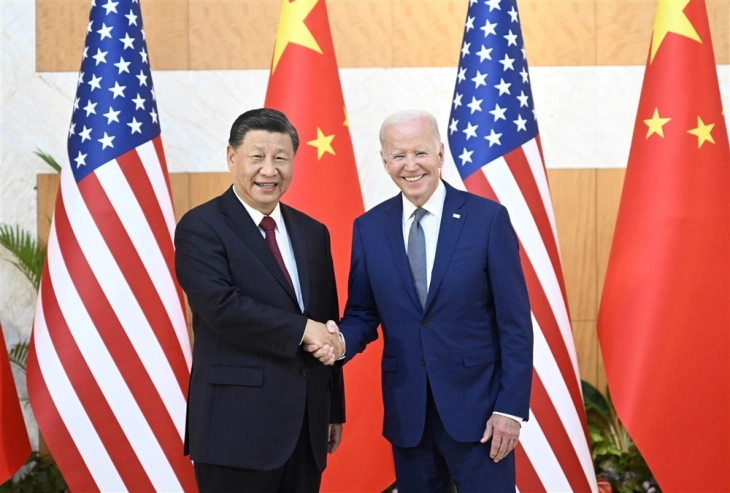
San Francisco, 16 November 2023 (dpa/MIA) - The US and China will resume military-to-military communication after a long period of radio silence, US President Joe Biden told reporters on Wednesday following a long-awaited face-to-face meeting with Chinese leader Xi Jinping.
The step was "critically important," the US leader said in a news conference following his first face-to-face meeting with Xi in a year.
"We are reassuming military-to-military direct contact... [which had] been cut off, and has been worrisome, that's how accidents happen," Biden said.
"We're back to direct, open, clear, direct communications," Biden said. "Vital miscalculations on either side can cause real, real trouble with a country like China or any other major country."
Biden said that "important progress" was made during the long-awaited face-to-face encounter, aimed at stabilizing strained relations between the two powers.
Washington had repeatedly warned that communication between the militaries of the two countries was of crucial importance for the responsible management of relations. Beijing had essentially cut these links, which posed risks.
According to the White House, during the meeting Biden also insisted on the preservation of "peace and stability" in the South China Sea.
"On Taiwan, President Biden emphasized that our one China policy has not changed and has been consistent across decades and administrations," the White House said in a readout of the meeting.
"He reiterated that the United States opposes any unilateral changes to the status quo from either side, that we expect cross-strait differences to be resolved by peaceful means, and that the world has an interest in peace and stability in the Taiwan Strait," the readout said.
Biden also "called for restraint" in China's "use of military activity in and around the Taiwan Strait," the White House said.
Biden called for Beijing to respect electoral processes in Taiwan, a representative of the US government said after the encounter, according to journalists travelling with him.
During the exchange with Biden, Xi reportedly expressed concerns that the Taiwan issue is the biggest and potentially most dangerous conflict in US-China relations. He reportedly said he kept hearing reports from the US that China was planning military action in Taiwan, but he asserted this is not the case.
Taiwan, which lies only 130 kilometres off the coast of mainland China, has had an independent government since 1949, but China considers the democratic island with more than 23 million inhabitants part of its territory.
Biden called the day of meetings with Xi on the sidelines of the Asia-Pacific Economic Community (APEC) summit "some of the most constructive and productive discussions we've had."
"We built on groundwork laid over the past several months of diplomacy between our countries and made important progress," Biden said in a post on social media platform X, formally Twitter.
The relationship between the US and China has been increasingly tense over the last few years. Biden and Xi had not seen each other in person since the G20 summit on the Indonesian island of Bali a year ago.
Although there have been various meetings and talks between high-ranking government representatives from both sides in recent months, there have been no direct exchanges between the two presidents.
Before the face to face talks, the US side had said that their aim was to organize competition between the two countries in a responsible manner, secure channels of communication, and avoid a drift into military conflict.
Overall, the US is keen to steer the relationship in an orderly direction and prevent the fierce competition from drifting into actual conflict.
In Beijing, Foreign Ministry spokeswoman Mao Ning said this week that China wanted relations to be put back on a "stable path."
A trade fight, accusations of espionage, tensions surrounding Taiwan and China's stance in the Ukraine war have frayed ties.
Illicit drugs coming out of China were also on the agenda, and the leaders agreed to resume "bilateral cooperation to combat global illicit drug manufacturing and trafficking, including synthetic drugs like fentanyl," the White House said.
Before the talks, Beijing had warned it was unwilling to budge when it came to Taiwan and its territorial claims in the South China Sea - points of contention that have raised the spectre of war.
Sill, in recent months both sides have endeavoured to revive dialogue with each other. The presidential meeting was preceded by numerous meetings between high-ranking members of government from both countries.
The two leaders also discussed climate change, with Bident saying that Washington "stands ready to work together with [China] to address transnational challenges, such as health security and debt and climate finance in developing countries and emerging markets," the White House said.
Washington and Beijing both reaffirmed the goals of the 2015 Paris Agreement, a treaty aiming to hold the increase in the global average temperature to well below 2 degrees Celsius - and if possible 1.5 degrees - above pre-industrial levels.
The move to expand cooperation between China and the US on climate issues comes ahead of the UN Climate Change Conference, known as COP 28, to be held in Dubai later this month.
China is by far the largest emitter of greenhouse gases worldwide, followed by the US, though when it comes to per capita emissions, the US is ahead of China.
China is only planning to gradually reduce its emissions from 2030, a strategy seen as incompatible with the goals of the Paris agreement.
Photo: MIA archive

